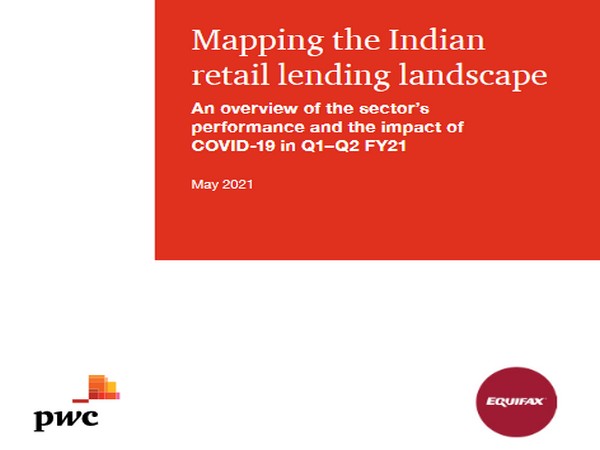
New Delhi [India], May 29 (ANI): Nearly 73 per cent of credit managers are expected to change their lending strategies, especially for the unsecured portfolio, in order to manage asset quality and mitigate emerging risks in the portfolio, according to a recent PwC Equifax survey.
The Covid-19 pandemic has put lenders in a difficult position due to falling liquidity and low growth prospects of major sectors. PwC said the Covid-19 crisis is forcing lenders to go back to their drawing boards and rethink sales, servicing, collection and operating models.
At the same time, some organisations are utilising the pandemic as an opportunity to develop tactical and strategic interventions to develop long-term resilience.
Nearly 20 chief financial officers and 70 credit managers participated in the PwC survey conducted in collaboration with Equifax.
Consequently, lenders have become more conservative and are planning to expand their focus on existing customers and offer products to support them.
The survey said 36 per cent of credit managers are looking to adopt alternative data in addition to bureau data for better underwriting.
Besides, 62 per cent of managers will be targeting existing customers amid muted credit demand and reduced discretionary spends by prospects.
Significantly, 50 per cent of credit managers surveyed have accelerated the use of digital tools for customer acquisition.
The key reasons of concern for banks and other lenders include deterioration in asset quality as many small and medium enterprises besides retail customers are unable to repay loans due to falling sales.
Incomes have fallen and job losses are widespread. Several corporates are unable to recover from the shock and have become delinquent.
Higher cost of capital and deferral of interest collections have led to liquidity crunches for banks. Higher operating expenditure and a reduced net interest margin have added to the problem.
Even though there are relaxations in risk-related regulatory requirements, maintaining capital adequacy remains a challenge.
Interest income for lenders has reduced as the consumption and demand for loans have decreased while non-performing assets have increased. Unsecured credit has been performing worse while secured loans are affected to a lesser extent.
The survey finding show that demand for high ticket-sized loans decreased significantly post-pandemic with large ticket-sized loans (more than Rs 75 lakh) showing sharpest decline of 80 per cent.
The top five states (Maharashtra, Uttar Pradesh, Tamil Nadu, Andhra Pradesh and Karnataka) alone contributed to almost 50 per cent of delinquent accounts.
Pro-active collection strategy followed by enriching contactability of borrowers were the top two measures highlighted by credit managers to manage emerging risks. (ANI)
This story is auto-generated from a syndicated feed. ThePrint holds no responsibility for its content.
Subscribe to our channels on YouTube & Telegram
Why news media is in crisis & How you can fix it
India needs free, fair, non-hyphenated and questioning journalism even more as it faces multiple crises.
But the news media is in a crisis of its own. There have been brutal layoffs and pay-cuts. The best of journalism is shrinking, yielding to crude prime-time spectacle.
ThePrint has the finest young reporters, columnists and editors working for it. Sustaining journalism of this quality needs smart and thinking people like you to pay for it. Whether you live in India or overseas, you can do it here.